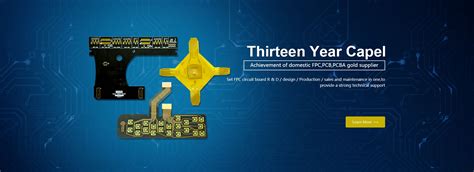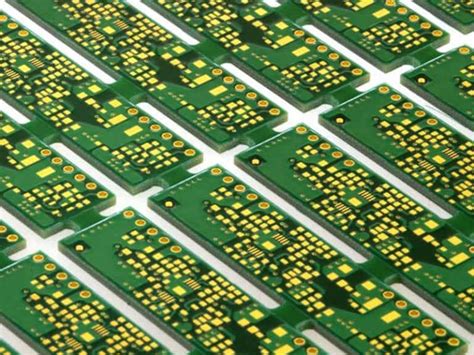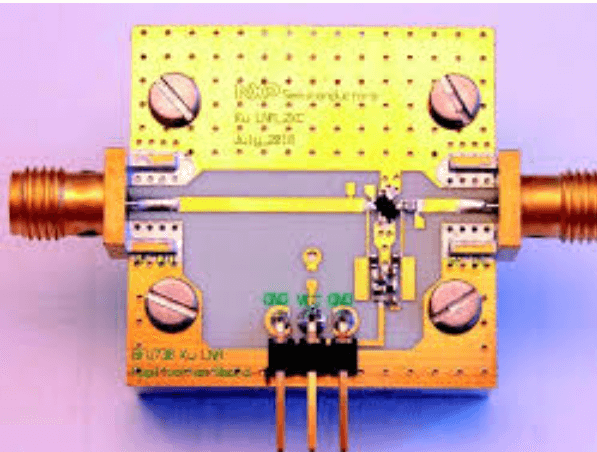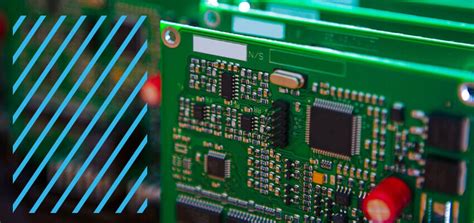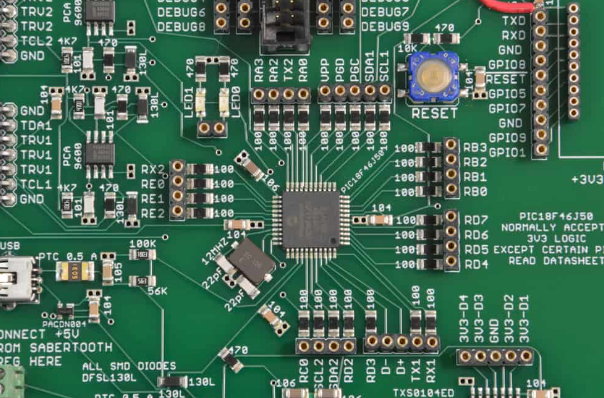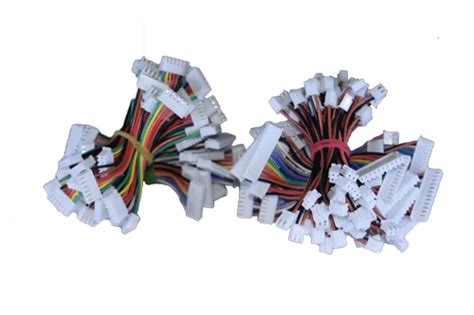Unlocking Innovation: The Future of Contract Manufacturing in PCB Assembly
Key Takeaways
The landscape of contract manufacturing in PCB assembly has witnessed significant transformation in recent years, providing businesses with numerous strategic advantages. As companies increasingly seek to focus on their core competencies, outsourcing PCBA has become an appealing option. The rise of contract manufacturing not only allows access to advanced technologies but also fosters innovation and efficiency in production processes. Firms that specialize in pcb assembly are now leveraging cutting-edge techniques such as automated assembly lines and sophisticated quality control measures, which enhance the overall reliability of the produced electronics. Furthermore, an emphasis on sustainability initiatives within contract manufacturing serves to meet growing consumer demands for environmentally-friendly practices while improving the longevity of products. It is crucial for organizations to navigate potential challenges within this evolving landscape to maximize the benefits that pcb assembly brings to their operational success. By understanding these dynamics, businesses can strategically position themselves for future growth and adaptation in a rapidly changing market.
The Rise of Contract Manufacturing in PCB Assembly
The landscape of contract manufacturing in PCB assembly has transformed markedly over the past few decades, reflecting a significant shift towards efficiency and specialization. As electronics become more complex, the demand for expert PCBA services has surged, allowing companies to focus on their core competencies while outsourcing intricate assembly tasks. By leveraging external expertise, organizations can enhance their production capabilities and streamline operations. This trend not only fosters innovation but also leads to increased cost-effectiveness. Furthermore, many manufacturers are adopting flexible business models that allow for scalability in production to meet varying market demands. The rise of contract manufacturing in PCB assembly signifies a strategic alliance between companies and specialized firms, creating synergies that advance technology and drive quality in the electronics sector. As this sector evolves, the opportunities for collaboration will continue to grow, paving the way for cutting-edge developments in electronics production and positioning organizations favorably within competitive markets.
Technological Innovations Shaping PCB Production
The world of PCB assembly is undergoing a significant transformation, driven by cutting-edge technological innovations. One of the most noteworthy advancements is the integration of automated assembly processes, which enhances both speed and precision in PCBA operations. As manufacturers implement smart technologies, such as the Internet of Things (IoT) and artificial intelligence, they are enabling real-time monitoring and data analytics throughout the production lifecycle. This leads to a more responsive manufacturing environment capable of quickly adapting to changes in demand or design specifications. Furthermore, advances in materials science, including flexible substrates and high-frequency laminates, are expanding the possibilities for PCB design, ultimately contributing to lighter, slimmer, and more efficient electronic devices.
In parallel, innovations in 3D printing technology have started to revolutionize prototyping in pcb assembly, allowing for rapid iteration and reduced development times. With these enhancements, companies can optimize designs before proceeding to mass production—a critical factor for achieving high-quality outcomes. Additionally, advancements in soldering techniques have significantly improved adhesion and conductivity, resulting in more reliable connections on the PCB. The combination of these technological innovations not only boosts efficiency but also assures higher quality standards in electronic production, enabling manufacturers to stay competitive and responsive amidst a fast-evolving marketplace. Thus, embracing these changes is essential for any organization aiming to thrive in the dynamic realm of contract manufacturing in PCB assembly.
Strategic Advantages of Outsourcing PCB Assembly
Outsourcing PCB assembly offers numerous strategic advantages that can significantly enhance a company’s operational efficiency and product quality. By leveraging specialized contract manufacturers, businesses can focus on core competencies while benefitting from the expertise of dedicated professionals adept in the nuances of PCBA processes. One of the primary advantages is cost efficiency; outsourcing can lead to reduced labor and operational costs, allowing companies to allocate resources to other critical areas, such as research and development.
Additionally, access to advanced technologies and state-of-the-art equipment through contract manufacturers allows for improved precision and scalability. For instance, a company that partners with a specialized manufacturer may utilize advanced inspection tools, ensuring that each pcb assembly meets stringent quality standards. This not only enhances end-product reliability but also supports faster market delivery.
| Advantage | Description |
|---|---|
| Cost Efficiency | Reduces labor and overhead costs by leveraging expertise |
| Access to Technology | Utilizes advanced equipment for superior production |
| Quality Enhancement | Ensures strict adherence to quality standards |
| Focus on Core Competencies | Allows companies to redirect focus on strategic initiatives |
“Outsourcing PCB assembly is not just about cost reduction; it’s an integral part of innovation and efficiency in the rapidly evolving electronics landscape.”
Incorporating PCBA into an overall manufacturing strategy aligns with market demands, enabling rapid adaptation to changes. Moreover, collaboration with experienced manufacturers often fosters innovation—enabling businesses not only to meet existing requirements but also to anticipate future developments in the electronics industry. This proactive approach positions companies advantageously in a competitive marketplace where agility and responsiveness are paramount.
Quality Assurance in Contract Manufacturing: Best Practices
In the dynamic field of pcb assembly, ensuring the highest standards of quality is paramount to the success of any project. Effective quality assurance practices are essential not only for achieving the desired functionality but also for fostering trust between manufacturers and clients. One best practice in contract manufacturing is the implementation of rigorous testing protocols throughout the pcba process. This includes pre-production sample evaluations, in-line inspections, and final product assessments that cover electrical performance, durability, and adherence to design specifications. Incorporating advanced technologies such as automated Optical Inspection (AOI) further enhances quality control by enabling real-time feedback and analysis. Additionally, adopting a culture of continuous improvement ensures that manufacturers can respond effectively to any issues that arise during production. Engaging all stakeholders in regular reviews and audits can also uncover opportunities to enhance processes and eliminate defects. Ultimately, a committed focus on quality assurance within pcb assembly not only mitigates risks but also drives greater efficiency and reliability in electronics production, ensuring that products meet both market demands and regulatory standards effectively.
Future Trends in PCB Assembly and Manufacturing
As the industry adapts to meet increasing demands for electronic devices, the future of pcb assembly is poised for significant transformation. One of the most prominent trends is the integration of automation into the manufacturing process. Advanced robotics and artificial intelligence are not only streamlining production but also enhancing the accuracy and consistency of pcba. Another notable trend is the growing emphasis on sustainability in contract manufacturing. Companies are increasingly adopting eco-friendly materials and processes to minimize waste and energy consumption, aiming to meet both regulatory obligations and consumer demand for greener products. Furthermore, as technology continues to evolve, smart manufacturing techniques, such as IoT connectivity and data analytics, are becoming integral to optimizing operations and ensuring real-time monitoring of production lines. Investments in these areas will yield strategic advantages that enhance both efficiency and quality, placing companies at the forefront of a highly competitive market for pcb assembly services. With these innovations, stakeholders can expect a future where flexibility and responsiveness define successful contract manufacturing practices in the PCB landscape.
The Role of Automation in Enhancing Efficiency
Automation is revolutionizing the landscape of pcba, significantly driving the efficiency and quality of pcb assembly processes. By integrating advanced technologies such as robotics, artificial intelligence, and machine learning, manufacturers can streamline production workflows and reduce human error, which can often lead to costly defects. The precise nature of automated systems enables faster setup times, allowing for quicker transitions between different pcb assembly projects. This is particularly advantageous in a market that demands rapid turnaround times and high-quality standards.
Moreover, automation facilitates real-time monitoring of production processes, providing valuable data insights that help in identifying areas for improvement. These data-driven strategies lead to enhanced quality assurance practices throughout the pcba lifecycle. By leveraging automation, businesses can not only maintain consistency in their outputs but also adapt to the dynamic demands of customers more effectively.
The scalability of automated systems is another crucial benefit, as it allows facilities to expand or contract production capacity based on current market demands without compromising on efficiency. As a result, contract manufacturing companies specializing in pcb assembly are increasingly adopting automation technologies to optimize their operations while ensuring they remain competitive in a fast-evolving industry.
Ultimately, the continued integration of automation in pcba not only fosters enhanced operational efficiency but also supports sustainability efforts by minimizing waste and conserving resources during the manufacturing process. As advancements in technology progress, the impact of automation on the contract manufacturing sector will undoubtedly continue to shape its future trajectory.
Sustainability Initiatives in Contract Manufacturing for Electronics
In recent years, sustainability has become a pivotal focus in the world of contract manufacturing for electronics, particularly in PCB assembly. Manufacturers are increasingly recognizing the importance of reducing their carbon footprint and utilizing resources more efficiently. One significant initiative involves the adoption of eco-friendly materials in pcba processes; this includes shifting towards lead-free solders and recyclable substrates. Furthermore, companies are implementing greener practices by optimizing supply chains, which helps minimize waste during production. These sustainability strategies not only promote environmental responsibility but also align with consumer expectations of ethical manufacturing practices. As players in the electronics industry prioritize sustainable methods, they are likely to see improved operational efficiencies and enhanced brand loyalty among increasingly eco-conscious customers. This holistic approach to sustainability positions the pcb assembly sector at the forefront of innovation and responsibility within the global manufacturing landscape.
Navigating Challenges in the Evolving PCB Landscape
As the world of pcb assembly continues to evolve, businesses encounter a range of challenges that require careful consideration and strategic planning. One significant hurdle is supply chain disruptions, which can affect the timely delivery of components essential for efficient pcba processes. The ongoing global shifts in manufacturing have also led to fluctuations in material costs, impacting pricing strategies. Additionally, with the rapid introduction of new technologies, companies must invest in upskilling their workforce to ensure that they can adapt to these advancements swiftly. Another challenge lies in maintaining rigorous quality assurance standards amidst increased production demands; outsourcing can sometimes introduce variability that must be expertly managed. Embracing innovative practices and developing robust partnerships with contract manufacturers can help organizations navigate these complexities effectively. By leveraging strategic outsourcing possibilities and cultivating a strong network, businesses are better positioned to overcome these obstacles while enhancing efficiency and maintaining high-quality standards in their pcb assembly processes.
Conclusion
In assessing the trajectory of contract manufacturing within PCB assembly, it becomes evident that this sector is poised for significant transformation. As demand for high-quality PCBA solutions escalates, companies are increasingly turning to innovative partnerships to leverage specialized expertise and advanced technologies. The advent of automation plays a crucial role in elevating production efficiency while adhering to stringent quality standards. Moreover, adopting sustainability practices within the manufacturing process not only enhances brand reputation but also aligns with global initiatives aimed at reducing environmental impact. Challenges remain, notably in navigating complex supply chains and ensuring timely delivery; however, by embracing strategic advantages inherent in outsourcing, manufacturers can position themselves favorably within an ever-evolving market landscape. The future of PCB assembly appears bright, driven by a commitment to innovation, quality assurance, and sustainability.
FAQs
What is contract manufacturing in PCB assembly?
Contract manufacturing in PCB assembly involves outsourcing the production processes of printed circuit boards to specialized companies. These companies handle the fabrication, assembly, and testing of PCBA, allowing businesses to focus on their core competencies.
What are the main benefits of outsourcing PCB assembly?
Outsourcing PCB assembly offers several strategic advantages, including cost savings, access to advanced technologies, and scalability. Companies can enhance their efficiency and reduce overhead expenses by leveraging the expertise of contract manufacturers.
How do technological innovations influence PCB production?
Technological advancements play a crucial role in enhancing PCB assembly processes. Innovations such as automated pick-and-place machines, real-time quality monitoring, and advanced materials contribute to higher precision and faster production cycles.
What should companies consider for quality assurance in PCBA?
Quality assurance in PCBA is essential for reliable electronic products. Companies should implement rigorous testing protocols, including automated optical inspection (AOI), functional testing, and adherence to industry standards to ensure that all components meet quality benchmarks.

